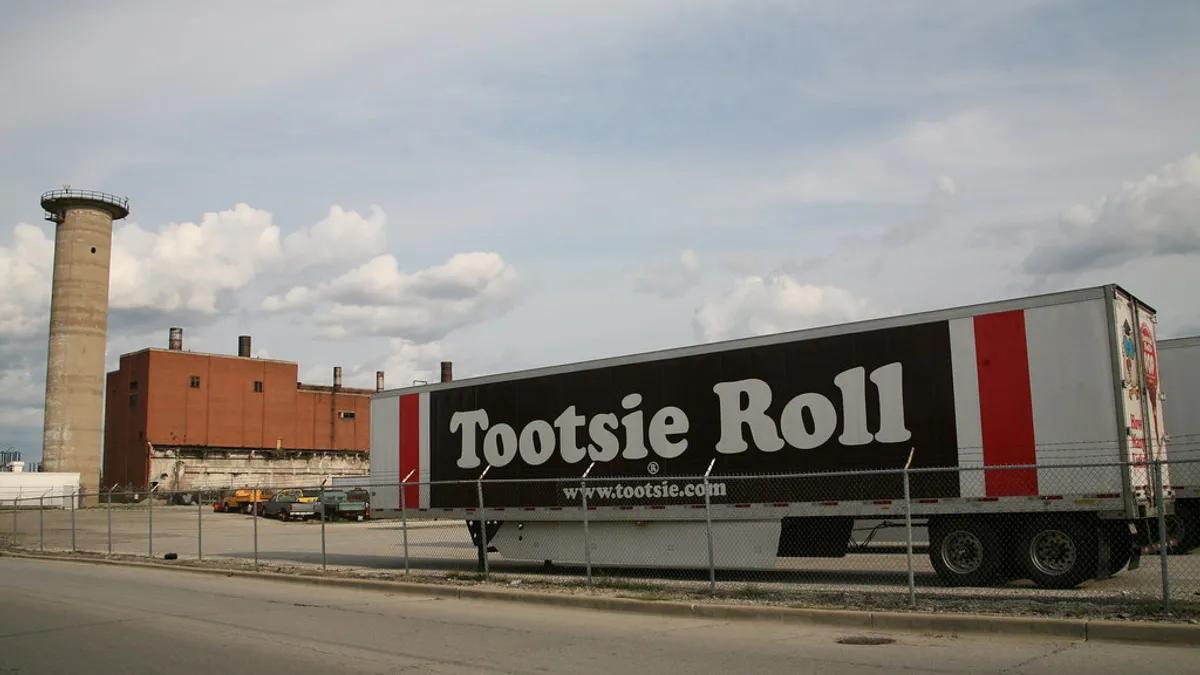Dive Brief:
- Tootsie Roll said delayed supplier deliveries and other supply chain challenges "could result in the temporary shut-down of one or more manufacturing lines," according to a Q1 earnings report.
- Ingredients and packaging suppliers have been unable to meet promised delivery dates due to rail and truck limitations, according to the report, limiting the candy manufacturer's ability "to meet our higher demand in 2022."
- "Although we are cautiously optimistic, it is possible that supply chain disruptions could result in the temporary shut-down of one or more manufacturing lines resulting in lost sales and profits in 2022," the company said.
Dive Insight:
Supplier deliveries slowed in April as businesses struggled with labor and transportation constraints, according to the Manufacturing ISM Report on Business released this month. Customer inventories were considered "much too low" despite a month-over-month increase.
"What Tootsie Roll Industries experienced is not unique," Shay Luo, principal at global consulting firm Kearney, wrote in an email to Supply Chain Dive. "We see many leading brands across industries (CPG, household, industrial, pharma and more) are facing the same challenge – missing sales due to product availability," Luo wrote.
Shippers are seeing longer wait times and higher costs as supply chain challenges intensify due to lockdowns in China and the war in Ukraine. Tootsie Roll said the Ukraine conflict has "limited availability of certain ingredients and materials" and that it has faced "some of the highest increases in our total input costs that we have seen in decades."
Despite the costs, Tootsie Roll moved to expand annual commitments for some ingredients from its suppliers to meet higher demand. Still, the company said "certain markets are very tight and this incremental expansion has and will continue to result in yet higher unit costs for these additional materials."
In disruptive environments, securing supply is top priority, Luo said. Even if it means companies have to pay more.
"Costs become secondary, securing sufficient supply becomes the top agenda to maintain market position, and to win additional share," said Luo. "Those who managed having products on the shelf were able to catch the ride and expand market share during the pandemic."
Correction: The story has been updated to correct the last name of Shay Luo.














